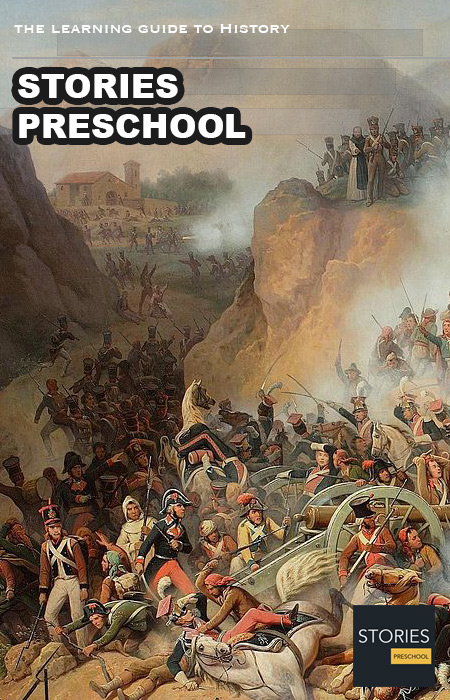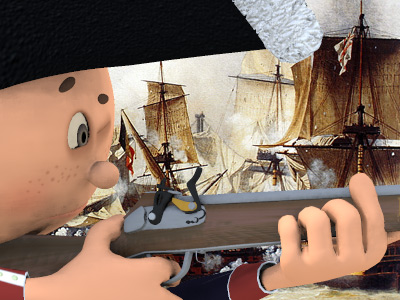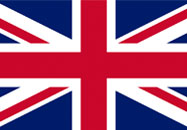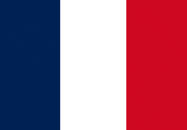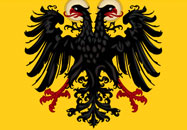Napoleonic Wars (1803-1815)
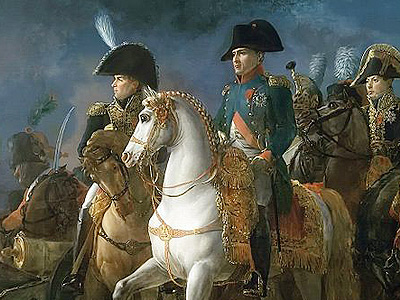
The Napoleonic Wars (1803-1815) were a series of major conflicts pitting the French Empire and its allies, led by Napoleon, against a fluctuating array of European powers formed into various coalitions, primarily led and financed by the United Kingdom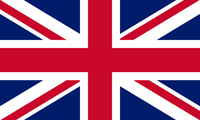 The United Kingdom of Great Britain and Ireland was a sovereign state in Northwestern Europe that comprised the entirety of the British Isles between 1801 and 1922. The United Kingdom, having financed the European coalition that defeated France during the Napoleonic Wars, developed a large Royal Navy that enabled the British Empire to become the foremost world power for the next century.. The wars resulted from the unresolved disputes associated with the French Revolution and the Revolutionary Wars, which had raged on for years before concluding with the Treaty of Amiens in 1802.
The United Kingdom of Great Britain and Ireland was a sovereign state in Northwestern Europe that comprised the entirety of the British Isles between 1801 and 1922. The United Kingdom, having financed the European coalition that defeated France during the Napoleonic Wars, developed a large Royal Navy that enabled the British Empire to become the foremost world power for the next century.. The wars resulted from the unresolved disputes associated with the French Revolution and the Revolutionary Wars, which had raged on for years before concluding with the Treaty of Amiens in 1802.
The resumption of hostilities the following year paved the way for more than a decade of constant warfare often categorized into five conflicts: the War of the Third Coalition (1805), the War of the Fourth Coalition (1806-7), the War of the Fifth Coalition (1809), the War of the Sixth Coalition (1813), and the War of the Seventh Coalition (1815). The Napoleonic Wars had profound consequences for global and European history, leading to the spread of nationalism and liberalism, the rise of the British Empire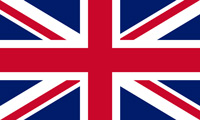 The British Empire, was composed of the dominions, colonies, protectorates, mandates, and other territories ruled or administered by the United Kingdom and its predecessor states. At its height it was the largest empire in history and, for over a century, was the foremost global power. By the start of the 20th century, Germany and the United States had begun to challenge Britain's economic lead. as the world's premier power, the independence movements in Latin America and the collapse of the Spanish Empire
The British Empire, was composed of the dominions, colonies, protectorates, mandates, and other territories ruled or administered by the United Kingdom and its predecessor states. At its height it was the largest empire in history and, for over a century, was the foremost global power. By the start of the 20th century, Germany and the United States had begun to challenge Britain's economic lead. as the world's premier power, the independence movements in Latin America and the collapse of the Spanish Empire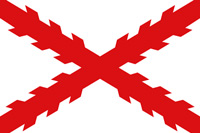 The Spanish Empire was a colonial empire governed by Spain and its predecessor states between 1492 and 1976. One of the largest empires in history, it was the first to usher the European Age of Discovery and achieve a global scale, controlling vast territory. It was one of the most powerful empires of the early modern period, reaching its maximum extent in the 18th century., the fundamental reorganization of German and Italian territories into larger states, and the establishment of radically new methods in warfare.
The Spanish Empire was a colonial empire governed by Spain and its predecessor states between 1492 and 1976. One of the largest empires in history, it was the first to usher the European Age of Discovery and achieve a global scale, controlling vast territory. It was one of the most powerful empires of the early modern period, reaching its maximum extent in the 18th century., the fundamental reorganization of German and Italian territories into larger states, and the establishment of radically new methods in warfare.
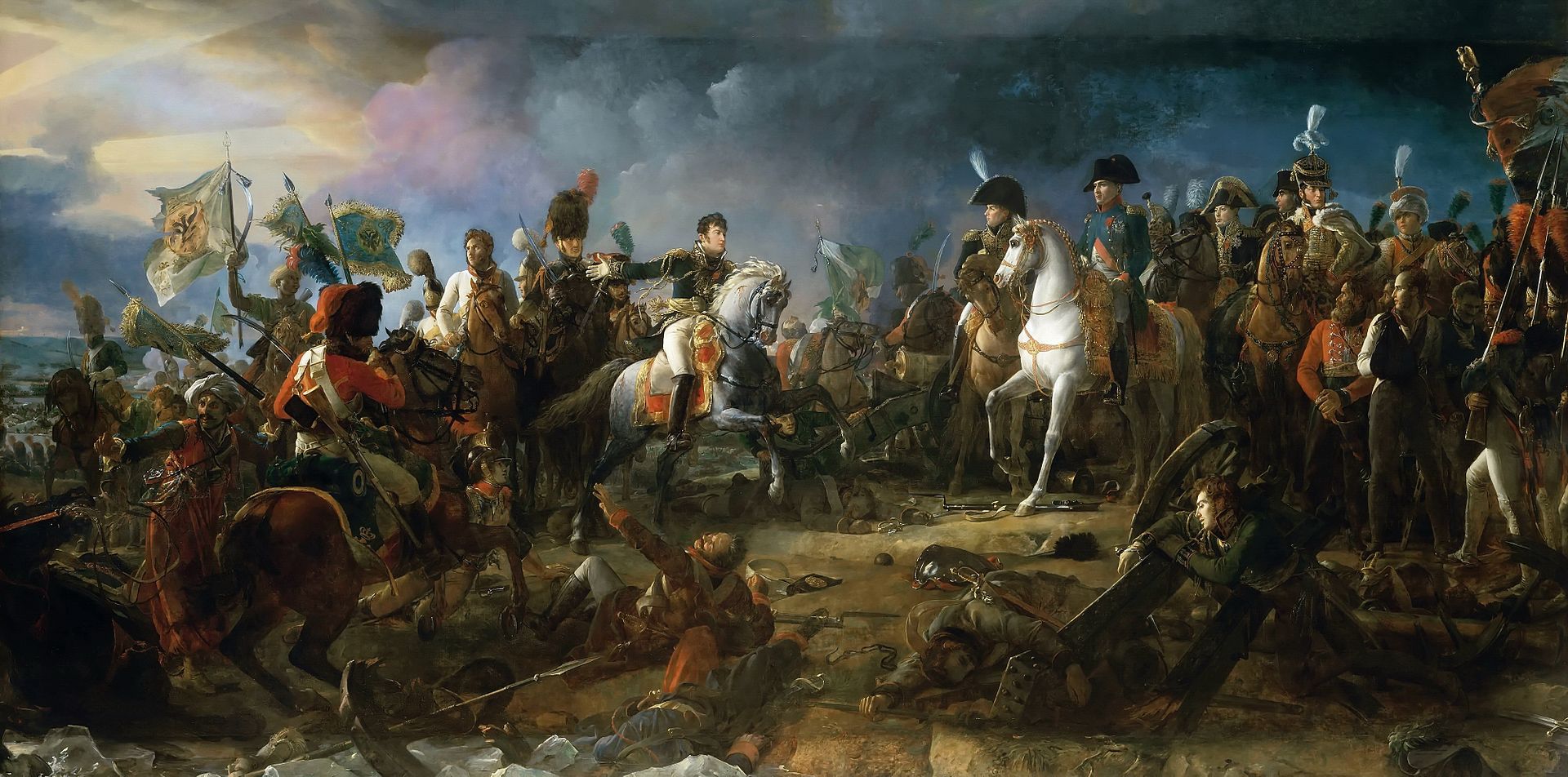
Napoléon at the Battle of Austerlitz, by François Gérard

Napoléon at the Battle of Austerlitz, by François Gérard
( Click image to enlarge)
Napoleon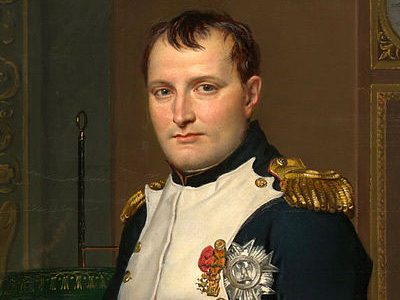 Napoleon Bonaparte (1769-1821), was a French military and political leader who rose to prominence during the French Revolution and led several successful campaigns during the French Revolutionary Wars. As Napoleon I, he was Emperor of the French from 1804 until 1814, and again in 1815. One of the greatest commanders in history, his wars and campaigns are studied at military schools worldwide. Napoleon Bonaparte » became the First Consul of France in 1799, then Emperor five years later. Inheriting the political and military struggles of the Revolution, he created a state with stable finances, a strong central bureaucracy, and a well-trained army. The British frequently financed the European coalitions intended to thwart French ambitions in Europe. By 1805, they had managed to convince the Austrians
Napoleon Bonaparte (1769-1821), was a French military and political leader who rose to prominence during the French Revolution and led several successful campaigns during the French Revolutionary Wars. As Napoleon I, he was Emperor of the French from 1804 until 1814, and again in 1815. One of the greatest commanders in history, his wars and campaigns are studied at military schools worldwide. Napoleon Bonaparte » became the First Consul of France in 1799, then Emperor five years later. Inheriting the political and military struggles of the Revolution, he created a state with stable finances, a strong central bureaucracy, and a well-trained army. The British frequently financed the European coalitions intended to thwart French ambitions in Europe. By 1805, they had managed to convince the Austrians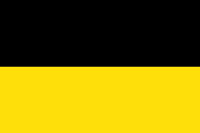 Austrian Empire was a Central-Eastern European and multinational great power from 1804 to 1867, created by proclamation out of the realms of the Habsburgs. During its existence, it was the third most populous monarchy in Europe after the Russian Empire and the United Kingdom. Along with Prussia, it was one of the two major powers of the German Confederation. The empire was proclaimed by Francis II in 1804 in response to Napoleon's declaration of the First French Empire. and the Russians to wage another war against France
Austrian Empire was a Central-Eastern European and multinational great power from 1804 to 1867, created by proclamation out of the realms of the Habsburgs. During its existence, it was the third most populous monarchy in Europe after the Russian Empire and the United Kingdom. Along with Prussia, it was one of the two major powers of the German Confederation. The empire was proclaimed by Francis II in 1804 in response to Napoleon's declaration of the First French Empire. and the Russians to wage another war against France First French Empire, officially the French Republic, then the French Empire after 1809, also known as Napoleonic France, was the empire ruled by Napoleon Bonaparte, who established French hegemony over much of continental Europe at the beginning of the 19th century. It lasted from 18 May 1804 to 11 April 1814 and again briefly from 20 March 1815 to 7 July 1815. A series of wars, known collectively as the Napoleonic Wars, extended French influence to much of Western Europe and into Poland.. In response, Napoleon rapidly marched the Grand Army into the heart of Central Europe, demolishing the isolated Austrian forces during the Ulm Campaign before scoring a historic victory against the Allies at the Battle of Austerlitz in December 1805. At sea, the Royal Navy destroyed a combined Franco-Spanish fleet at Trafalgar in October 1805, securing British control of the seas for the remainder of the wars.
First French Empire, officially the French Republic, then the French Empire after 1809, also known as Napoleonic France, was the empire ruled by Napoleon Bonaparte, who established French hegemony over much of continental Europe at the beginning of the 19th century. It lasted from 18 May 1804 to 11 April 1814 and again briefly from 20 March 1815 to 7 July 1815. A series of wars, known collectively as the Napoleonic Wars, extended French influence to much of Western Europe and into Poland.. In response, Napoleon rapidly marched the Grand Army into the heart of Central Europe, demolishing the isolated Austrian forces during the Ulm Campaign before scoring a historic victory against the Allies at the Battle of Austerlitz in December 1805. At sea, the Royal Navy destroyed a combined Franco-Spanish fleet at Trafalgar in October 1805, securing British control of the seas for the remainder of the wars.
Prussian worries about increasing French power led to the formation of the Fourth Coalition in 1806. The French quickly defeated the Prussians at the battles of Jena and Auerstedt, then Napoleon marched the Grand Army deep into Eastern Europe and annihilated the Russians Russian Empire was an empire and the final period of the Russian monarchy from 1721 to 1917, ruling across large parts of Eurasia. The rise of the Russian Empire coincided with the decline of neighbouring rival powers: the Swedish Empire, the Polish–Lithuanian Commonwealth, Qajar Iran, the Ottoman Empire, and Qing China. Russia remains the third-largest empire in history, surpassed only by the British Empire and the Mongol Empire. in June 1807 at the Battle of Friedland. France then forced the defeated nations of the Fourth Coalition to sign the Treaties of Tilsit in July, bringing an uneasy peace to the continent. Although Tilsit signified the high watermark of the French Empire, it did not bring a lasting peace for Europe. Two years later, the Austrians and the British challenged the French again during the War of the Fifth Coalition, but Napoleon solidified his grip over Europe after triumphing at the Battle of Wagram in July 1809.
Russian Empire was an empire and the final period of the Russian monarchy from 1721 to 1917, ruling across large parts of Eurasia. The rise of the Russian Empire coincided with the decline of neighbouring rival powers: the Swedish Empire, the Polish–Lithuanian Commonwealth, Qajar Iran, the Ottoman Empire, and Qing China. Russia remains the third-largest empire in history, surpassed only by the British Empire and the Mongol Empire. in June 1807 at the Battle of Friedland. France then forced the defeated nations of the Fourth Coalition to sign the Treaties of Tilsit in July, bringing an uneasy peace to the continent. Although Tilsit signified the high watermark of the French Empire, it did not bring a lasting peace for Europe. Two years later, the Austrians and the British challenged the French again during the War of the Fifth Coalition, but Napoleon solidified his grip over Europe after triumphing at the Battle of Wagram in July 1809.
Hoping to extend the Continental System and choke off British trade with the European mainland, Napoleon invaded Iberia and declared his brother Joseph the King of Spain in 1808. The Spanish and the Portuguese revolted with British support. The Peninsular War lasted six years, featured extensive guerrilla warfare, and ended in victory for the Allies. The Continental System caused recurring diplomatic conflicts between France and its client states, especially Russia. Unwilling to bear the economic consequences of reduced trade, the Russians routinely violated the Continental System and enticed Napoleon into another war. The French launched a major invasion of Russia in the summer of 1812. The resulting campaign witnessed the collapse and retreat of the Grand Army along with the widespread destruction of Russian lands and cities.
In 1813, Prussia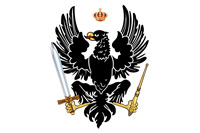 The Kingdom of Prussia was a German kingdom that constituted the state of Prussia between 1701 and 1918. It was the driving force behind the unification of Germany in 1871 and was the leading state of the German Empire until its dissolution in 1918. Although it took its name from the region called Prussia, it was based in the Margraviate of Brandenburg. Its capital was Berlin. and Austria joined Russian forces in a Sixth Coalition against France. A lengthy military campaign culminated in a large Allied army defeating Napoleon at the Battle of Leipzig in October 1813. The Allies then invaded France and captured Paris in the spring of 1814, forcing Napoleon to abdicate in April. He was exiled to the island of Elba near Rome and the Bourbons were restored to power. However, Napoleon escaped from Elba in February 1815 and took control of France once again.
The Kingdom of Prussia was a German kingdom that constituted the state of Prussia between 1701 and 1918. It was the driving force behind the unification of Germany in 1871 and was the leading state of the German Empire until its dissolution in 1918. Although it took its name from the region called Prussia, it was based in the Margraviate of Brandenburg. Its capital was Berlin. and Austria joined Russian forces in a Sixth Coalition against France. A lengthy military campaign culminated in a large Allied army defeating Napoleon at the Battle of Leipzig in October 1813. The Allies then invaded France and captured Paris in the spring of 1814, forcing Napoleon to abdicate in April. He was exiled to the island of Elba near Rome and the Bourbons were restored to power. However, Napoleon escaped from Elba in February 1815 and took control of France once again.
The Allies responded by forming a Seventh Coalition, which defeated Napoleon at the Battle of Waterloo in June. The Congress of Vienna, which started in 1814 and concluded in 1815, established the new borders of Europe and laid out the terms and conditions that ended the wars.
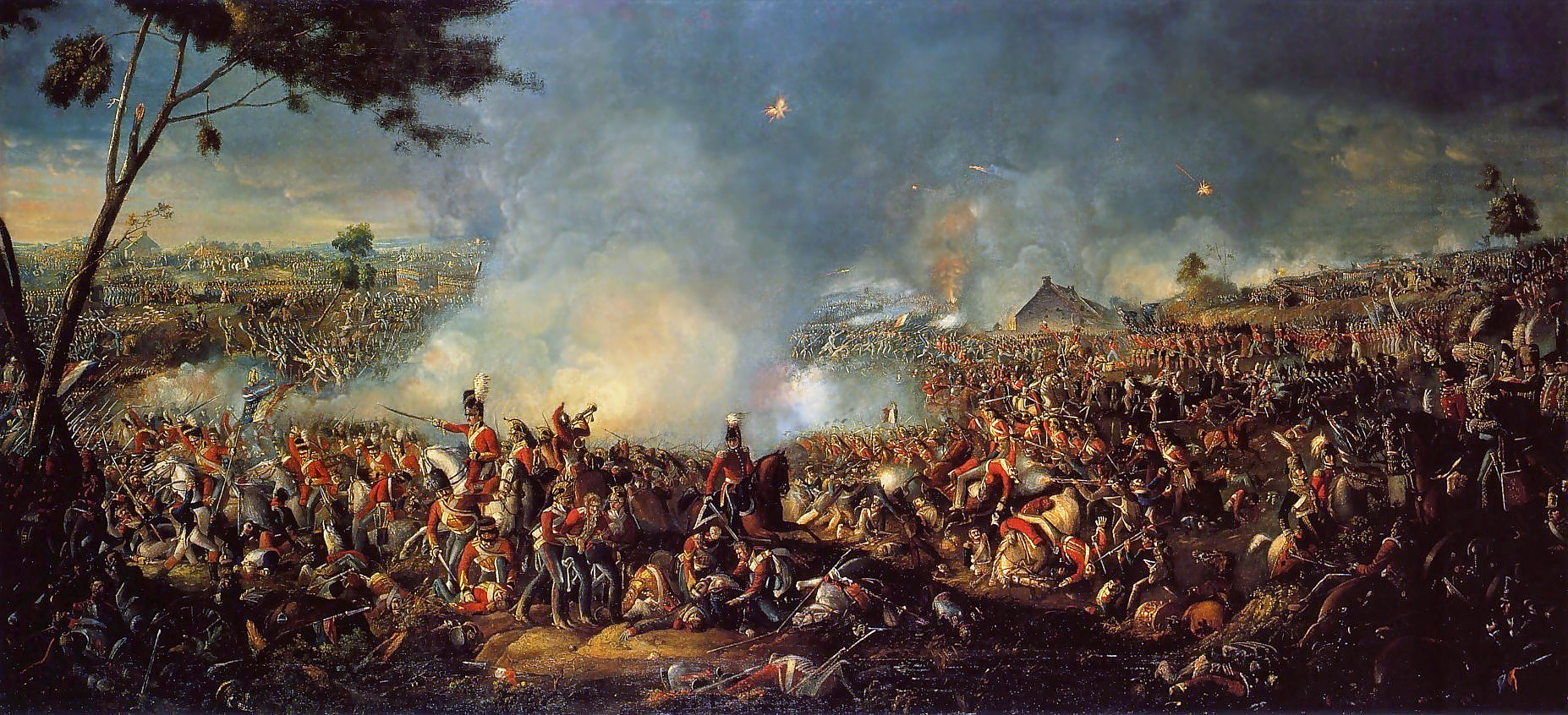
Battle of Waterloo 1815

Battle of Waterloo 1815
( Click image to enlarge)
HISTORY
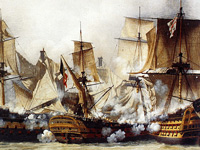
RESOURCES
This article uses material from the Wikipedia article "Napoleonic Wars", which is released under the Creative Commons Attribution-Share-Alike License 3.0.
© Stories Preschool. All Rights Reserved.
